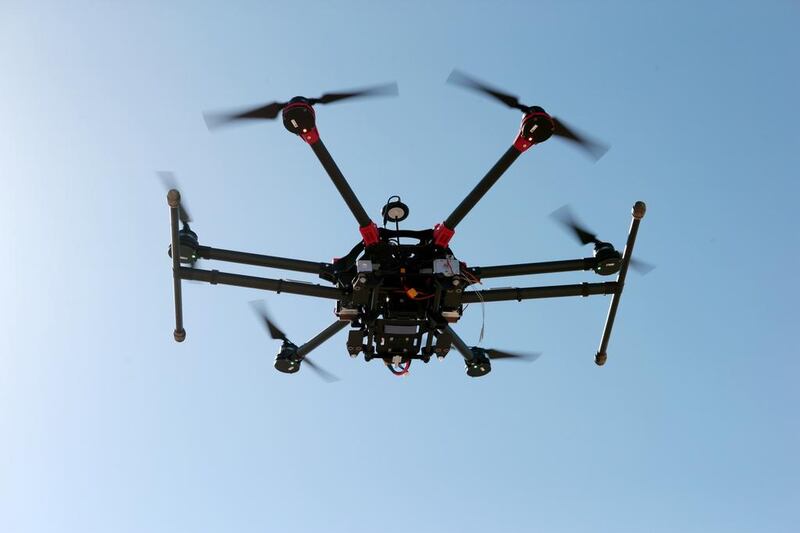DUBAI // Drone users caught flying without a licence will face fines of up to Dh20,000 as part of renewed efforts to tackle disruption to aviation.
The new penalty is part of broader regulations governing the aviation sector approved by Sheikh Hamdan bin Mohammed, Crown Prince of Dubai and Chairman of the Dubai Executive Council.
The move came after the closure of airspace over Dubai International Airport three times in four months last year, causing disruption and cancellations at a cost of millions of dirhams to the economy.
Resolution No 4 of 2017 states that anyone who carries out aviation activities is required to obtain a licence from the Dubai Civil Aviation Authority.
There will be a fine of Dh30,000 for organising air displays without a no-objection letter, while organising an event that could affect air navigation will incur a fine of Dh10,000. The new regulations also cover fireworks and laser displays, aerial photography and advertising and balloon launches.
At the time of the Dubai International closures, the most recent of which was in October, Dubai Airports chief executive Paul Griffiths said “we have got to find a way of controlling it immediately”.
He suggested geo-fencing chips be installed in devices that would physically prevent the drones flying into sensitive areas.
Aviation analyst Saj Ahmad, from Strategic Aero Research, said: “While this directive was not entirely unexpected, in my mind it doesn’t go far enough because the sheer vastness of unregistered drones and their proliferation means it’s nigh on impossible to police or regulate.
“Yes, the fines provide punitive elements, but if someone can’t pay, then what? Or what if the offending drone user simply abandons their device and makes another one?
“Drones aren’t complex – they can cost as little as $30 to make via parts off the internet – and then of course you have the issue of police resources being allocated to finding culprits – is this the best use of their time?
“The only real way to regulate drones is to outright ban them and enforce severe jail sentences with financial penalties as a deterrent. People will still flout the law but they will be fewer, and by extension there’ll be less of a threat to commercial airplanes in Dubai.”
Earlier this week, retailers said that tough penalties and confusion over the regulations around drone ownership were leading to fewer sales.
In October, Mr Griffiths said that along with physical changes to drones, there had to be the threat of serious legal action.
“If people are caught infringing the airspace and threatening the safety of civil aviation, then clearly the penalties have to reflect that,” he said.
Emirates, the largest airline at Dubai International, said on November 1 that unauthorised drone activity at the airport caused stoppages costing it “millions of dirhams on each occasion” and urged authorities to “take strong measures” against it.
“If people start to think you can’t fly into Dubai because you may get diverted because they can’t control the drone activity in the area, then that has a very serious reputational impact,” Mr Griffiths said.
nalramahi@thenational.ae






